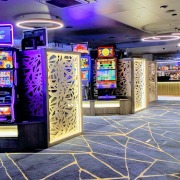HOW MUCH RESEACH IS YOUR CLUB DOING?
Research provides business intelligence that can give your club or pub a competitive edge. If other venues in your market have better intelligence that you do, then they’re armed to make better decisions.
Below are some of the different types of research you can undertake and the benefits they deliver.
Database Analysis:
This is a type of research that uses information you’ve collected from gamers to perform statistical analysis so that you can better understand your players and their behaviours. Almost all clubs are analysing the data from gaming and other business transactions (restaurants, entertainment, etc.). This research is typically performed on an ongoing basis by an in-house database analyst.
BENEFITS: Having accurate database analysis is what makes many marketing programs possible. It’s the basis of loyalty programs, club tiering, offers, promotions, service delivery and much more. It is the core of a venue’s retention, acquisition and recovery strategies.
Guest Satisfaction Survey:
This is one of the best ways to listen to the all-important Voice of the Customer by measuring how your customers rank every aspect of your property. These are a report card for your venue. Guest Satisfaction Surveys can pinpoint problems and measure how serious they are, and also show you what your customers rank highly so that you know where to focus your efforts. Some clubs conduct Satisfaction Surveys by using online software and in-house staff, but most usually retain outside resources.
BENEFITS: This type of survey can reduce customer churn, increase customer lifetime value, and reduce negative word-of-mouth.
Mystery Shopper:
Mystery Shopping is one of the most common research projects clubs and pubs undertake. However, venues must be clear on what information and experiences a shopper should be on the lookout for. Mystery shopping definitely has its place in data collection and market research, but it’s not a perfect study. It is low volume and shallow data from single person experiences. Mystery shopping tells you how one type of customer shops, but not how all types of customers shop. Mystery shopping is also completely subjective and only represents one interaction with employees and location. A busy day, short staff, or any number of mishaps can affect one experience, but not truly represent a regular customer visit.
BENEFITS: It’s best to use mystery shopping, not as a mass data collection technique, but a method for testing and refining customer experience on a case-by-case basis. Sending a mystery shopper to evaluate a venue and its competitor side-by-side can yield in-depth analysis on the products and service and of nearby rivals. A mystery shopper can stage similar experiences – signing up for membership, asking about the rewards program or ordering food on the gaming floor, which are all very valuable. It can be useful to test new policies and procedures or service offerings to see if employees are responding to guidelines. A mystery shopper can also provide a realistic evaluation based on how employees interact with real customers. And finally, mystery shoppers can offer informal opinions on everything from point-of-sale to promotions, customer service, and even the cleanliness of your venue. Those opinions can be used to better understand the customer’s viewpoint and make improvements accordingly.
Competitive Analysis:
Knowing what your competitors are doing, how they’re doing it, and how well they are doing it compared to your property is vital information. This analysis determines their strengths and weaknesses relative to your club or pub. Most clubs do at least some monitoring of the competition in-house – signing up for their direct mail, joining as members and checking out their social media and promotions. You can also structure this by a professional, objective review from a researcher.
BENEFITS: Formulate a better marketing strategy and plan by leveraging what your venue is doing best and improve key areas that are your weaknesses.
Feedback Surveys:
Feedback surveys cover a range of categories, but the common thread is that they are all designed to gather feedback from users of products, services, experiences and programs. For clubs this might be a post-promotion evaluation, players club evaluation, a dinner/show review or just about anything that you’re doing that can be evaluated by your customers. Some clubs are using online survey software to conduct these surveys in-house, and others are contracting this out.
BENEFITS: Knowing how your customers evaluate your marketing initiatives allow you to adjust and improve, which increases efficiency and profitability.
Employee Engagement Surveys:
This type of survey is designed to measure a relationship that goes beyond employee satisfaction; an “engaged employee” is one who is fully absorbed in and enthusiastic about their work, and takes positive action to further the organisation’s reputation and interests. An engagement survey is done annually or every other year by an outside research company.
BENEFITS: Knowing how to increase engagement leads to employees who care more, are more productive, give better service, and even stay in their jobs longer. All of that leads to happier customers, who buy more and refer more often, which drives sales and profits higher.
Focus Groups:
A focus group is a form of qualitative research in which a group of people are asked about their perceptions, opinions, beliefs and attitudes towards a product, service, concept, or idea. Quantitative research answers “how many,” and qualitative research answers the “how” and “why.” The group members are carefully selected in specific groups (gamers, diners, sports bar patrons etc) and are led through a specific agenda by an experienced moderator. Some clubs conduct their own informal focus groups, while other clubs use a professional researcher.
BENEFITS: Quantitative research may indicate an area where you need to understand why you’re getting a certain result. Focus groups let you drill down and find out why you’re seeing certain findings. They can also be used to pre-test your customers before making major changes.
Branding & Awareness:
Branding Surveys or Attitude, Awareness & Usage Surveys take stock of your market and give you an opportunity to thoroughly review your product or service within its marketplace so that you can understand its appeal, strengths, weaknesses, and any gaps in the offering. It also gives you insights regarding perception and helps you evaluate how your product is known and perceived by the market. These surveys are conducted by a professional research firm ideally every three years or so, and brief, targeted surveys can fill in the knowledge gaps between surveys.
BENEFITS: This measures how well your brand is performing against competitors, as perceived by your customers, so you can increase performance in areas that count with customers. It also helps you evaluate your venue’s perception in the wider community.
If you’d like information about how The Drop could help with your venue’s research, please contact
Sources: Deb Hilgeman Ph. D. Raving Solutions / Your Marketing Mentor











